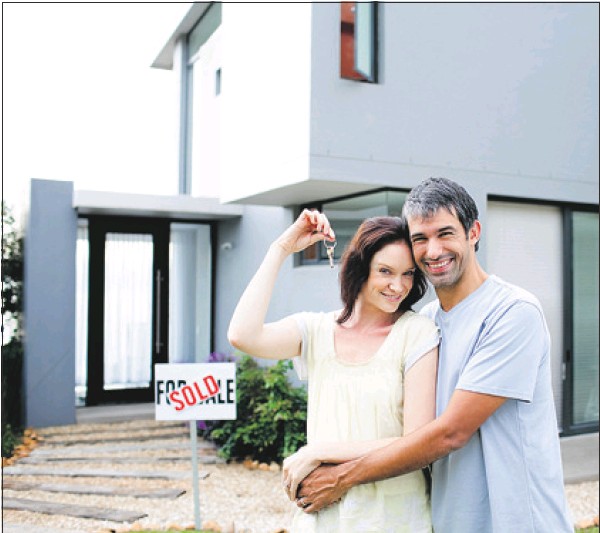Hire a professional inspector to give house the once-over
Province

House hunters ready to buy are advised to hire a professional inspector because, depending on what they find, it may impact the purchase price and affect your homeowners’ insurance premiums. — FOTOLIA
The rush is on to buy a home before the mortgage rates go up too high and, in B.C. and Ontario, before the harmonized sales tax is introduced on July 1, pushing prices higher.
But homebuyers are well-advised not to be too hasty when it comes to signing their names to the deed of their new homes.
“A house doesn’t come with a money-back guarantee, which is why it’s so important to be aware of potential issues before you buy,” says Henry Blumenthal, vice-president and chief underwriter, TD Insurance.
“New homeowners need to know what they’re buying and ensure they can maintain and protect their most valuable asset, because once the ‘sold’ sign goes up, the buck stops with them.”
By consulting the experts before you buy you can avoid being hit with unexpected expenses afterward — such as needing a new roof or furnace.
Even the best-looking home can have problems under the surface that will invalidate your home insurance.
TD Insurance advises that new homebuyers hire a professional home inspector to give the place the once-over before any cash changes hands.
The inspector’s job is to go over the home’s structure and major systems — roof, exterior, electrical, heating, cooling and plumbing — with a fine-tooth comb to identify current or future problems.
Insurers can use that report to identify areas that could decrease or increase premiums — or even make you ineligible for home insurance.
Water damage is one of the most common problems — currently, water damage is responsible for about half the home-insurance claims that TD Insurance pays out.
When looking at the building inspector’s report, an insurer will want to know, among other things, whether your house is susceptible to flooding, how often it occurs and what damage it causes, and will adjust your premiums accordingly.
Outdated plumbing and electrical systems can also affect your premiums and eligibility for insurance, as well as outdated heating systems; liability exposure (for example, an unfenced pool); previous renovations; presence of smoke detectors; and alarm systems.
“The inspection identifies what repairs need to be made and at what cost,” adds Bob Dunlop, president of Carson Dunlop, a leading home inspection company.
“Depending on your financial situation, what comes out of our report could have an impact on your purchase decision. It could even give you some bargaining power with the seller.”
© Copyright (c) The Province
